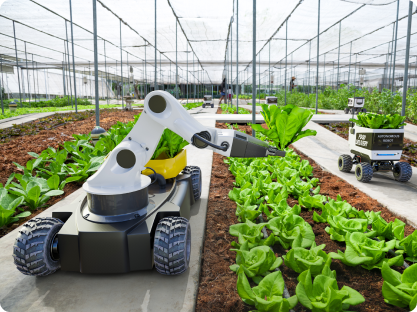
Agriculture is undergoing a revolution, and at the heart of this transformation lies Agri-Tech — the fusion of agriculture and technology. However, implementing such advanced solutions often requires substantial financial backing. That’s where Agri-Tech Financing comes in — a powerful financial solution that enables farmers, startups, and agribusinesses to adopt innovative technologies that increase productivity, efficiency, and sustainability in the agricultural sector.
Understanding Agri-Tech Financing
Agri-Tech Financing refers to the funding, loans, grants, or investment mechanisms that support the development and implementation of technology in agriculture. This may include:
-
Precision farming tools
-
Smart irrigation systems
-
Agri-drones for surveillance and spraying
-
Farm management software
-
IoT-based soil and crop sensors
With the help of financing, even smallholder farmers and mid-size agribusinesses can access cutting-edge technology, enabling them to compete in a modern, data-driven farming environment.
Importance of Agri-Tech Financing in Modern Agriculture
Modern agriculture is no longer just about seeds, soil, and sunlight. It’s about data, automation, and innovation. However, innovation doesn’t come cheap. Financing plays a pivotal role in bridging the gap between traditional farming and agri-tech adoption.
Boosting Agricultural Productivity
Technological tools allow farmers to monitor crop health, manage resources more efficiently, and make informed decisions based on real-time data. With financing, these tools become accessible to a broader audience.
Encouraging Sustainable Practices
Smart irrigation and fertilization techniques can drastically reduce waste and environmental damage. Financing green agri-tech solutions supports long-term environmental sustainability.
Enhancing Food Security
When farmers have access to better tools and data, they produce more food using fewer resources. Financing enables this transformation, thereby contributing to global food security goals.
Common Agri-Tech Financing Options Available
Agri-Tech financing can come from several different sources, each offering specific advantages depending on the needs and scale of the project.
Government Grants and Subsidies
Governments around the world recognize the importance of modernizing agriculture. Many offer special grants or low-interest loans to farmers adopting sustainable technologies. In some cases, subsidies cover up to 70% of the technology cost.
Private Equity and Venture Capital
Agri-tech startups often seek funding from private investors or venture capitalists. These investors are interested in scalable tech solutions that promise high returns and long-term impact.
Agri-Tech Loans from Banks
Some commercial and rural banks offer specific loan products for farmers and agri-tech entrepreneurs. These loans can be used to purchase equipment, software, and even training.
Crowdfunding and Peer-to-Peer Lending
Farmers and tech innovators can also turn to online platforms to raise funds from individuals who support sustainable agriculture. These methods are especially useful in regions with limited traditional financing access.
Challenges in Accessing Agri-Tech Financing
Despite its benefits, access to agri-tech financing is not without obstacles, especially in developing economies.
Lack of Financial Literacy
Many smallholder farmers are unfamiliar with financial planning, documentation, and the application processes required for loans or grants. This can lead to missed opportunities.
High Upfront Costs
Even with financing options available, some farmers are hesitant to invest due to the perception of high technology costs, uncertain returns, or maintenance difficulties.
Creditworthiness and Risk Assessment
Traditional lenders often consider agriculture a high-risk sector. Without collateral or a strong credit history, it can be difficult for farmers to secure funding.
The Role of Financial Institutions and FinTech in Agri-Tech
Banks and financial institutions are beginning to understand the potential of agri-tech. As a result, many are launching new financial products tailored specifically for agricultural innovation.
Digital Lending Platforms
FinTech companies are building digital platforms that allow farmers to apply for loans, upload land ownership documents, and receive funds—entirely online. This greatly improves accessibility in remote rural areas.
Smart Risk Assessment
Using AI and satellite imagery, FinTech firms can assess crop yield history, weather patterns, and soil conditions to reduce the perceived financial risk, making it easier to approve agri-tech loans.
Impact of Agri-Tech Financing on Smallholder Farmers
Smallholder farmers are often left behind in the race toward modernization. Agri-tech financing is a tool to level the playing field.
Access to Cutting-Edge Tools
With proper financing, small farmers can buy drones, install weather stations, and use crop-monitoring apps, just like large commercial farms.
Increased Income and Market Access
By improving crop yield and quality through technology, smallholders can command better prices and reach larger markets — even international ones.
Women and Youth Empowerment
Agri-tech often attracts young entrepreneurs and women farmers, offering new income opportunities and encouraging participation in the modern agri-economy.
How to Apply for Agri-Tech Financing
Whether you’re a farmer, agri-tech startup, or cooperative, securing financing follows a few essential steps:
-
Identify Your Need: Clarify whether you need funds for equipment, software, R&D, or operational expansion.
-
Prepare a Business Plan: A strong, clear proposal with goals, budgets, and expected outcomes.
-
Explore Financing Sources: Consider banks, grants, venture capital, and crowdfunding platforms.
-
Gather Documentation: Land ownership proof, income records, and identification documents are usually required.
-
Apply & Follow Up: Submit your application and be proactive in communicating with the financier.
Real-World Examples of Agri-Tech Financing in Action
Digital Green in India
This non-profit uses videos and mobile apps to educate farmers. With funding from both public and private institutions, it empowers rural communities to adopt best practices.
Hello Tractor in Nigeria
With the help of investor financing, Hello Tractor connects farmers to tractor owners via a mobile platform, increasing productivity and reducing labor costs.
AgFunder in the U.S.
This platform helps connect agri-tech startups with venture capitalists looking to invest in agricultural innovation.
FAQs About Agri-Tech Financing
❓ What is Agri-Tech Financing?
Agri-Tech Financing is the process of obtaining funding or investment for technology-based agricultural solutions, including machinery, software, and digital platforms.
❓ Who is eligible for Agri-Tech Financing?
Farmers, cooperatives, startups, agribusinesses, and even NGOs working in agricultural innovation can apply for agri-tech financing, depending on the funding source.
❓ Are there government programs that support agri-tech financing?
Yes, many governments offer subsidies, tax breaks, or grants for adopting technologies that improve agricultural productivity and sustainability.
❓ How can small farmers afford expensive agri-tech solutions?
With the right financing—through loans, leasing, or grants—smallholder farmers can adopt tech without upfront capital. Cooperative models and shared equipment programs also help.
❓ Is Agri-Tech Financing risky?
Like all investments, there is some risk, but many financing models are designed to reduce risk through phased payments, performance benchmarks, and insurance.
Conclusion
Agri-Tech Financing is a transformative tool that supports the modernization of global agriculture. It allows farmers and innovators to access the tools, platforms, and solutions they need to build smarter, more sustainable food systems. From digital farming apps to automated irrigation systems, financing makes the dream of future-ready farming a reality. As access expands and awareness grows, agri-tech financing is set to reshape the future of farming—making it greener, smarter, and more inclusive for all.




